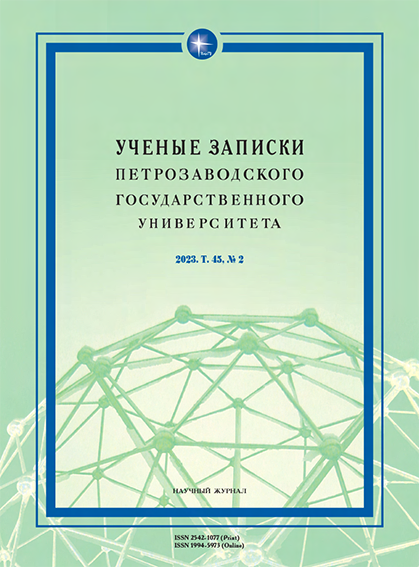СОЛОВЕЦКОЕ ЛЕТОПИСАНИЕ КОНЦА XVI ВЕКА:
ИСТОРИОГРАФИЯ ВОПРОСА
THE SOLOVETSKY CHRONICLE OF THE LATE XVI CENTURY:
HISTORIOGRAPHY OF THE ISSUE
Author(s): Ilia Stanislavovich AgafonovSubject(s): History, 16th Century
Published by: Петрозаводский государственный университет
Keywords: historiography; source studies; sixteenth century; local annals; all-Russian chronicles; Solovetsky Monastery; Solovetsky Сhronicler;
Summary/Abstract: The chronicle-writing traditions of Russia in the XVI century have been actively studied by Russian scholars using the materials of large Moscow written monuments. Such works as The Chronograph (1512 edition),The Nikon’s Chronicle and The Book of Royal Degrees attracted researchers’ attention due to the breadth of coverage of all-Russian events. At the same time, local monuments have remained on the periphery of specialists’ interests. To date, Russian historiography has accumulated extensive materials related to the publication, attribution, and analysis of various works created outside Moscow. Some problems are considered in the source studies of Russian scientists, however, historians focus their attention on textological issues, as well as the clarifi cation of individual macroplots ofRussian history. Meanwhile, a comprehensive study of the local chronicles of the late Middle Ages and the early ModernTimes has not been conducted. For further progress in addressing such issues as the formation and development of the book tradition in Russia in the XVI century it seems necessary to structure the materials accumulated by historical science, which can become the foundation for investigating the general and specific features of local chronicle-writing. The Solovetsky Chronicler of the late XVI century is an example of an unofficial chronicle written in the Russian North. The historiographical experience of studying this work accumulated by historical science is of interest for summarizingand identifying problematic issues. The novelty of the work lies in the preparation of the monument for examining it as an independent element of the historiographical tradition of Russia in the XVI century, which means referring to chronicle works as monuments of the historical thought of the region and era. The research resulted in summarizing the outcomes of the historiographical study of the Solovetsky annals by Russian scholars, namely the sources of the work, the ratio of editions, the time of creation, and the authorship of the monument. Attention is focused on the following issues that require special consideration when investigating The Solovetsky Chronicler of the XVI century as an example of local book tradition of its time: the purpose and practical application of the monument in the monastic tradition, the specifics of the work of local chroniclers, the principle of selecting the described events, and the author’s thematic priorities.
Journal: Ученые записки Петрозаводского государственного университета
- Issue Year: 45/2023
- Issue No: 2
- Page Range: 46-54
- Page Count: 9
- Language: Russian

